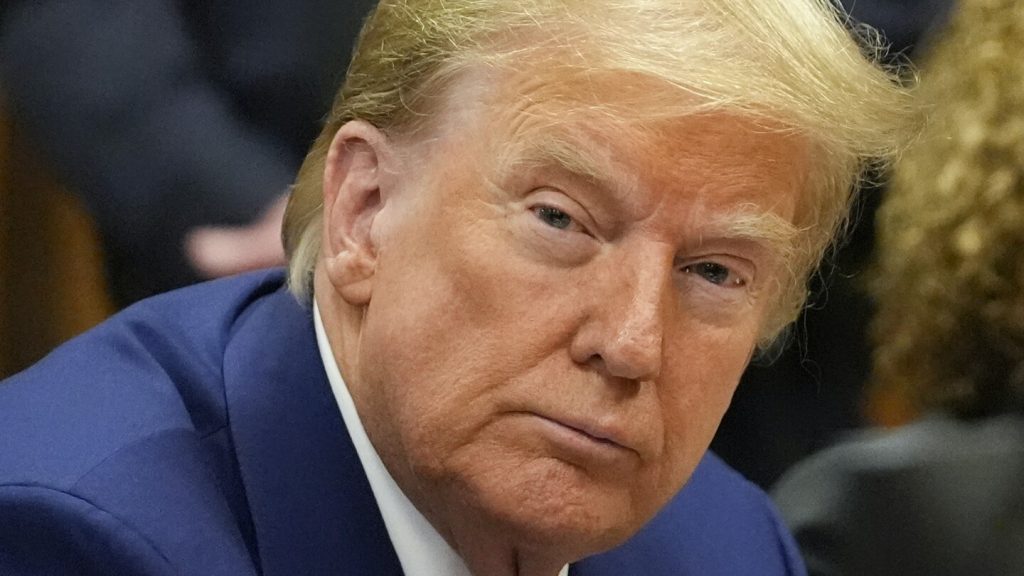Former President Donald Trump is set to stand trial on April 15 on charges related to hush money payments intended to cover up claims of marital infidelity, as ruled by a New York judge. The decision ensures that this will be the first of four criminal cases against Trump to go to trial. The trial had been delayed due to a last-minute document dump, which caused a postponement of the original date. The judge rejected claims of prosecutorial misconduct made by Trump’s defense team, stating that only a handful of the newly released records were relevant to the case.
During the hearing, Trump criticized the ruling, calling the case an act of “election interference.” He claimed that the case could have been brought three years ago and accused prosecutors of trying to influence the upcoming election. The trial in New York is part of a series of legal challenges that Trump is facing in his home state. The appeals court granted Trump some relief by agreeing to hold off collection of his $454 million civil fraud judgment if he puts up $175 million within 10 days. This case is the only one likely to go to trial in the coming months.
The hearing focused on a dispute over documents that had the potential to further delay the case. Trump’s lawyers argued that their preparations were being hindered by the late arrival of evidence from a federal investigation that resulted in his former lawyer, Michael Cohen, going to prison. Prosecutors denied any wrongdoing and blamed Trump’s legal team for waiting until the last minute to subpoena the records. The judge emphasized the seriousness of the allegations made by the defense and dismissed their claims of prosecutorial misconduct.
Trump faces charges of falsifying business records, with prosecutors alleging that he logged payments to Cohen as legal fees to cover up stories of extramarital sex that could have harmed his 2016 campaign. Trump has pleaded not guilty and continues to claim that the case is a “witch hunt” and a “hoax.” The payments to Cohen, including $130,000 to Stormy Daniels, were allegedly made to prevent her from going public about an affair with Trump. Cohen, who pleaded guilty in 2018 to federal charges related to the payments, is a key witness in the case against Trump.
Trump’s lawyers argue that the payments to Cohen were legitimate legal expenses and not cover-up checks. They claim that the delayed disclosures of evidence warranted dismissing the case or postponing it further. The material obtained from the federal investigation has not been made public, but Trump’s legal team believes that some of it is favorable to the defense. Prosecutors maintain that the majority of the material is irrelevant or duplicates existing evidence about Cohen’s convictions. The trial is scheduled for April 15, where Trump will face charges related to the hush money payments.


